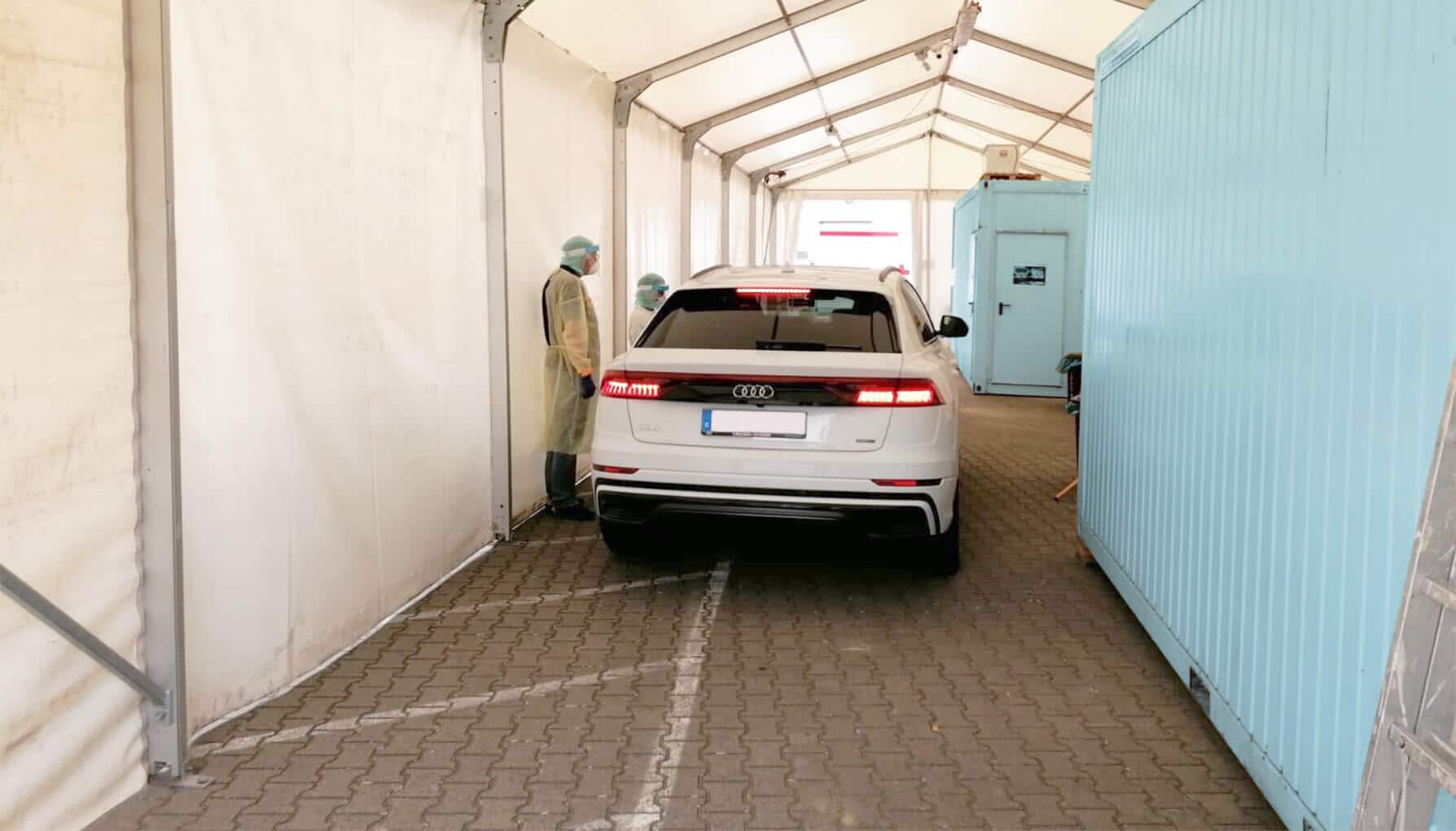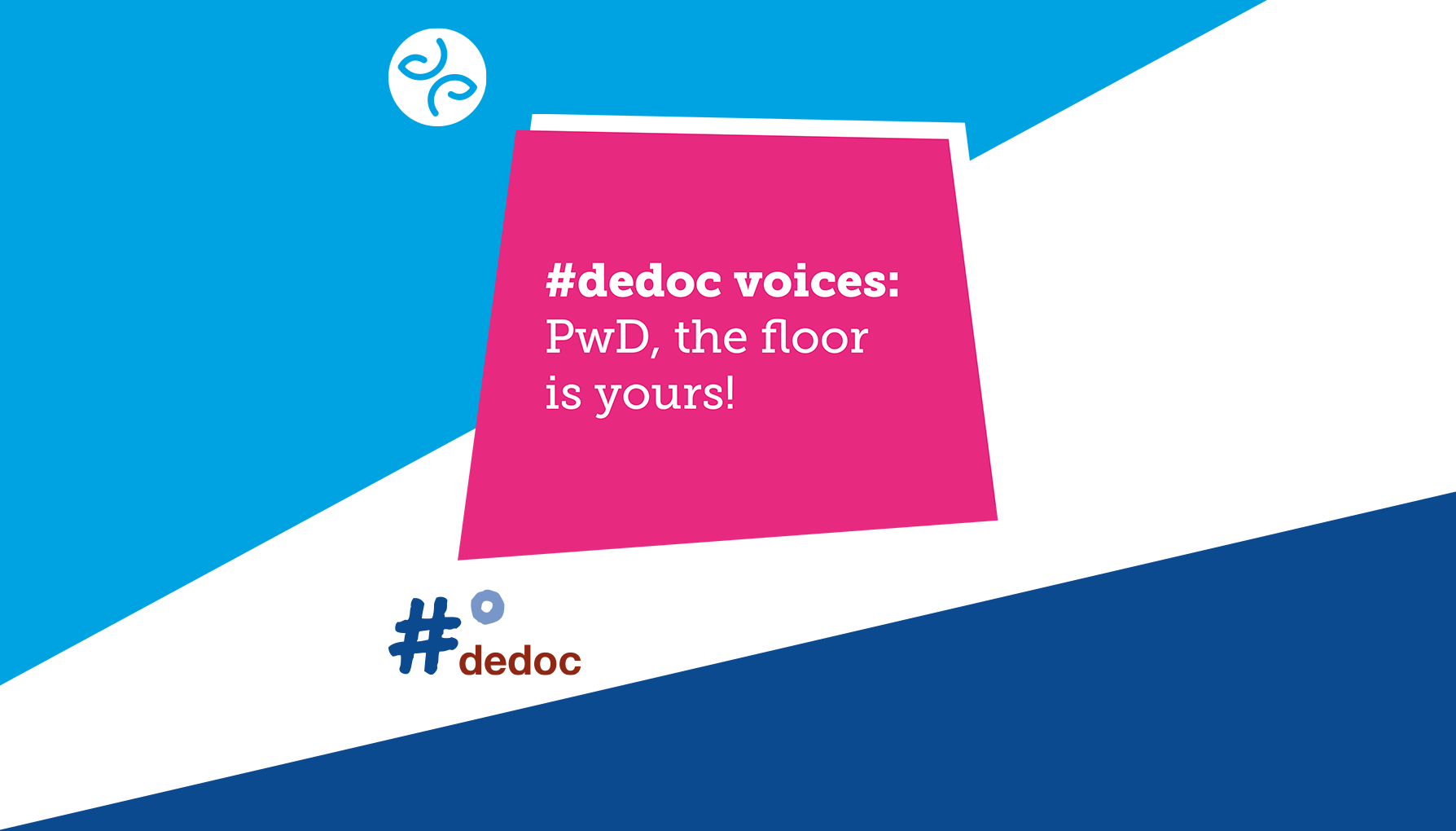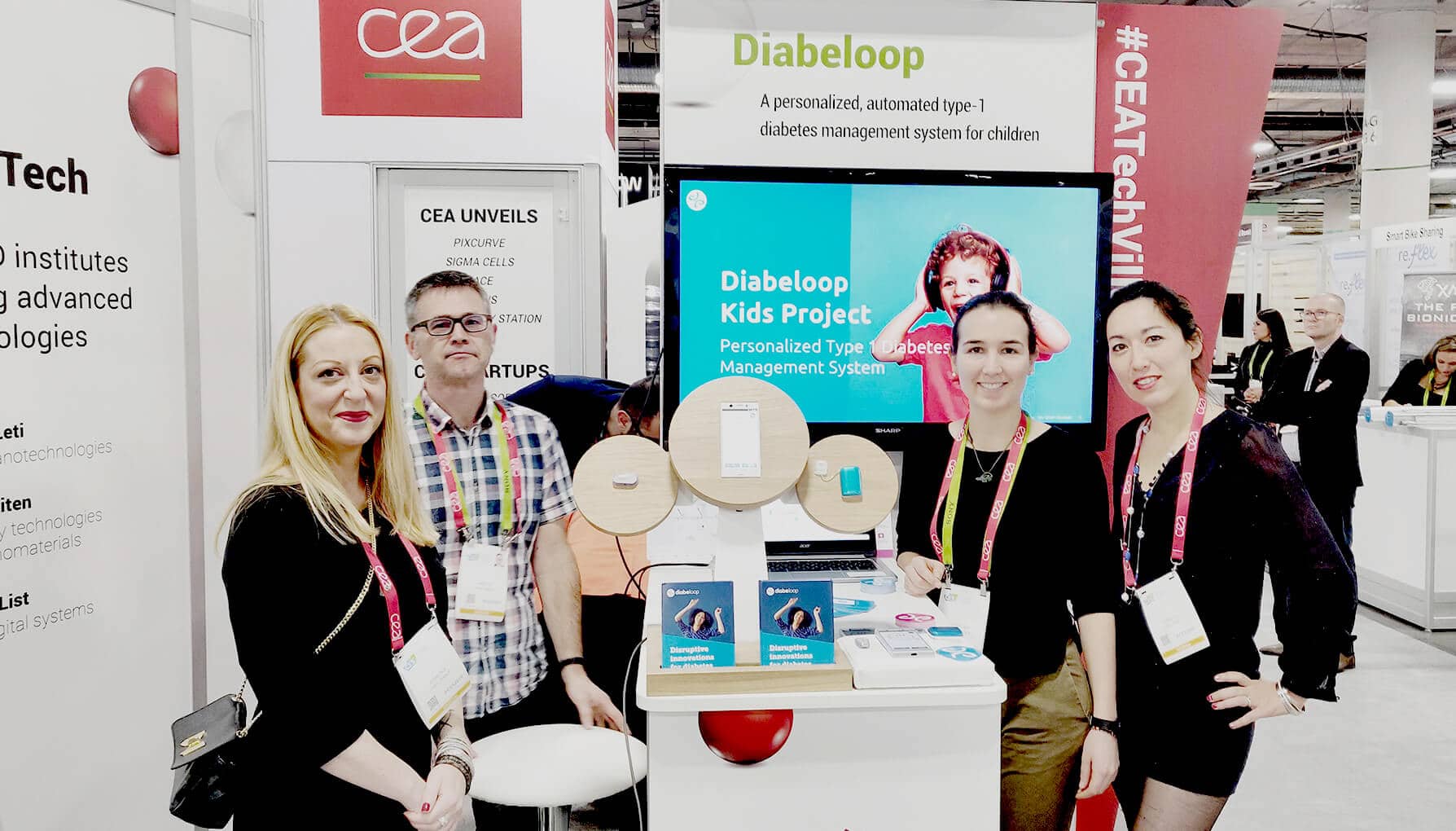Elke volunteered at a Coronavirus drive-in testing station
What exactly is a drive-in testing station? How does it work?
Date
Share

Our colleague, Elke, comes from Osthofen in the German region of Rhineland-Palatinate. Last month, she volunteered at a Coronavirus drive-in testing station there. What is it exactly? How does it work? What made her want to volunteer? She tells us everything.
Can you explain to us what exactly a Coronavirus drive-in testing station is?
The Coronavirus drive-in testing station where I volunteered was organized by the German Red Cross. When a doctor prescribes a Coronavirus test to a patient, they can make an appointment with the testing station. It looks like any fast food drive-in. Before the drive-in tent, there’s a station where security agents check the patient’s ID and if they have an appointment. The patient then gets a laminated sheet with their registration number. They then drive into the tent, and stay in their car the entire time.
And what was your role at the Coronavirus testing station?
There was always a team of 4 people, all of whom had medical backgrounds. We took turns with the different roles.
The first person had the task to explain to people how the test would work. It was important to reassure people who were scared, and to avoid false negative results.
The next person was “the tester”, who took the sample from the back of the patient’s throat.
The third person was at the ready with the tube that would receive the testing swab, and attach a sticker with the sending address on it.
The fourth person took the tube and the corresponding documents to the station, where it was prepared for shipping to the lab.
The idea was to keep all contact as short as possible, and to limit the risk of infection (through the swab, the tube…). Person 1 and 2 were very heavily protected, with masks, a visor, suit/protective gown and gloves for direct contact. Person 3 and 4 did not have a visor, and had to stay at least 2 meters away from the cars at all times.
Why did you want to volunteer there?
I am trained as a nurse, and I wanted to give a bit of help where I could during these difficult times. Give back to my community.
How was this time organized with your employer?
Before I responded to the call for medical workers to come work at the Coronavirus testing stations, I had a talk with my CEOs. They very much supported my project.
My CEOs gave me time-off, but I decided to organize my days so that I would start working earlier in the mornings and finish later in the evenings. I worked at the drive-in testing station from 12pm to 3pm.
Is there anything you found particularly interesting that you want to share?
I found it surprising to see how many people were affected by this situation. Some people were scared, others were in denial, and others were frustrated, because they had already been infectious for 4 or 5 weeks or more, though they thought the illness only lasted 14 days.
I really liked the children, they were really cool, and each one got a small gift from us.
The atmosphere at the testing station was very friendly, and even humorous despite the situation. Volunteer firefighters, the German Red Cross and many other volunteers worked at the station. That meant a lot of logistics, planning, orders… This was handled by public service employees (city administration, youth welfare office, etc.).
Moreover, we were receiving instructions from the chief physician of the health department, and they regularly checked whether we were protected enough, and whether we were taking all the recommended hygiene measures.
What have you learned during this experience?
It is better to actively help in a situation like this, than to sit at home frustrated. It was tiring and the days were long, but I am happy that I was able to help. I have gained more respect for volunteer workers (Red Cross, firefighters…). The warm atmosphere was good for me, and if such a situation arose again, I would do my part again.
While we were working, we all became friends.When it is safe to do so, , we will see one another again in a more social setting.
Is there anything else that you would like to share?
- When you work at a Coronavirus testing station, you know that conspiracy theories are unfounded.
- I am happy and thankful that my bosses supported me so enthusiastically.


